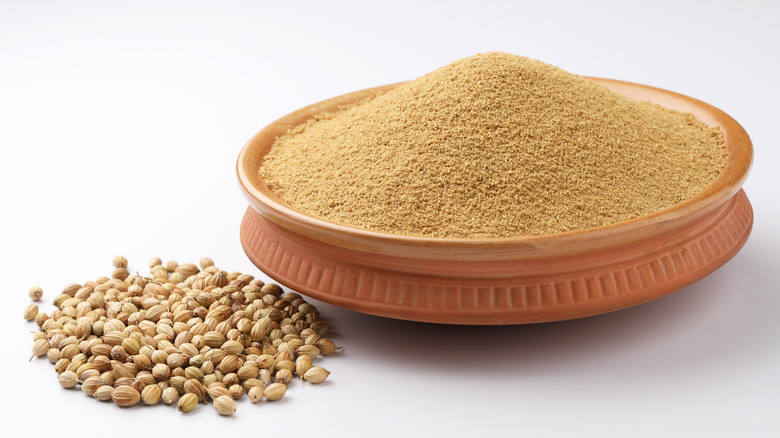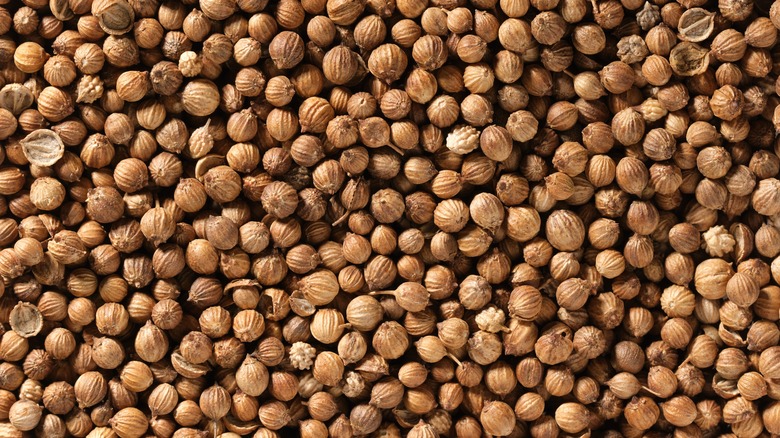Why You Should Always Grind Coriander Seed As You Need It
Coriander can be a bit perplexing since it has different definitions depending on where you come from. In the United States, coriander refers to the seeds of cilantro, but in many other English-speaking countries, they don't say cilantro at all and use the word coriander to refer to the entire plant: Leaves, stems, seeds, and all (per So Delicious). The seeds, which we'll focus on here, have a rather subtle sweet-sour flavor. So when you're cooking with coriander, it's best to use it in conjunction with a blend of other spices.
A perfect example of the latter principle is garam masala; something you've probably seen in a lot of Indian recipes. Per MasterClass, garam masala is a blend of coriander, black pepper, cinnamon, cumin, cardamom, and mace. And no, we're not referring to pepper spray. Mace is a part of nutmeg. It is blends like these where coriander is most valuable. But if you're planning to buy some the next time you're at the grocery store, we have some advice: Skip the pre-ground stuff and buy whole coriander seeds.
Pre-ground coriander quickly loses flavor
At first, the idea of buying whole spices and grinding them on one's own may seem foolish. Why do all that work when you can easily buy the powdered form, which, let's not forget, comes in a convenient shaker? As the legendary Indian cookbook author Madhur Jaffrey told MasterClass, "If ground coriander is left to sit around, it turns to sawdust faster than most spices." Coriander's flavor profile is subtle so imagine what happens to it in Jaffrey's scenario. "Sawdust" is probably an accurate description of what you'd end up with. Although coriander degrades at a particularly fast rate, other spices are not exempt from this fate.
Bon Appétit draws a helpful comparison between spices like coriander and fruit, such like an apple. When you cut an apple open, exposing its flesh to the air, it won't be long before it turns brown from oxidation. The same phenomenon applies to spices. So you want them to get as little oxygen exposure as possible before cooking with them. In powder form, every little speck of the spice is exposed to air, degrading much faster than they would if you'd kept them whole. Grinding spices at home doesn't take a lot of special equipment. While an electric grinder is certainly nice, a good old mortar and pestle are perfect for the job.

